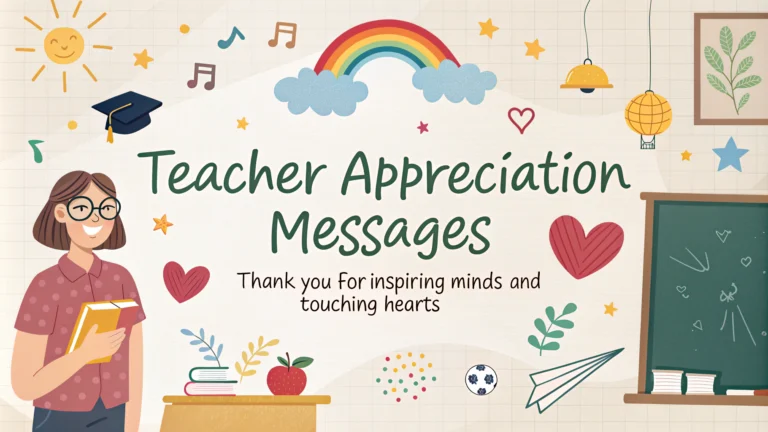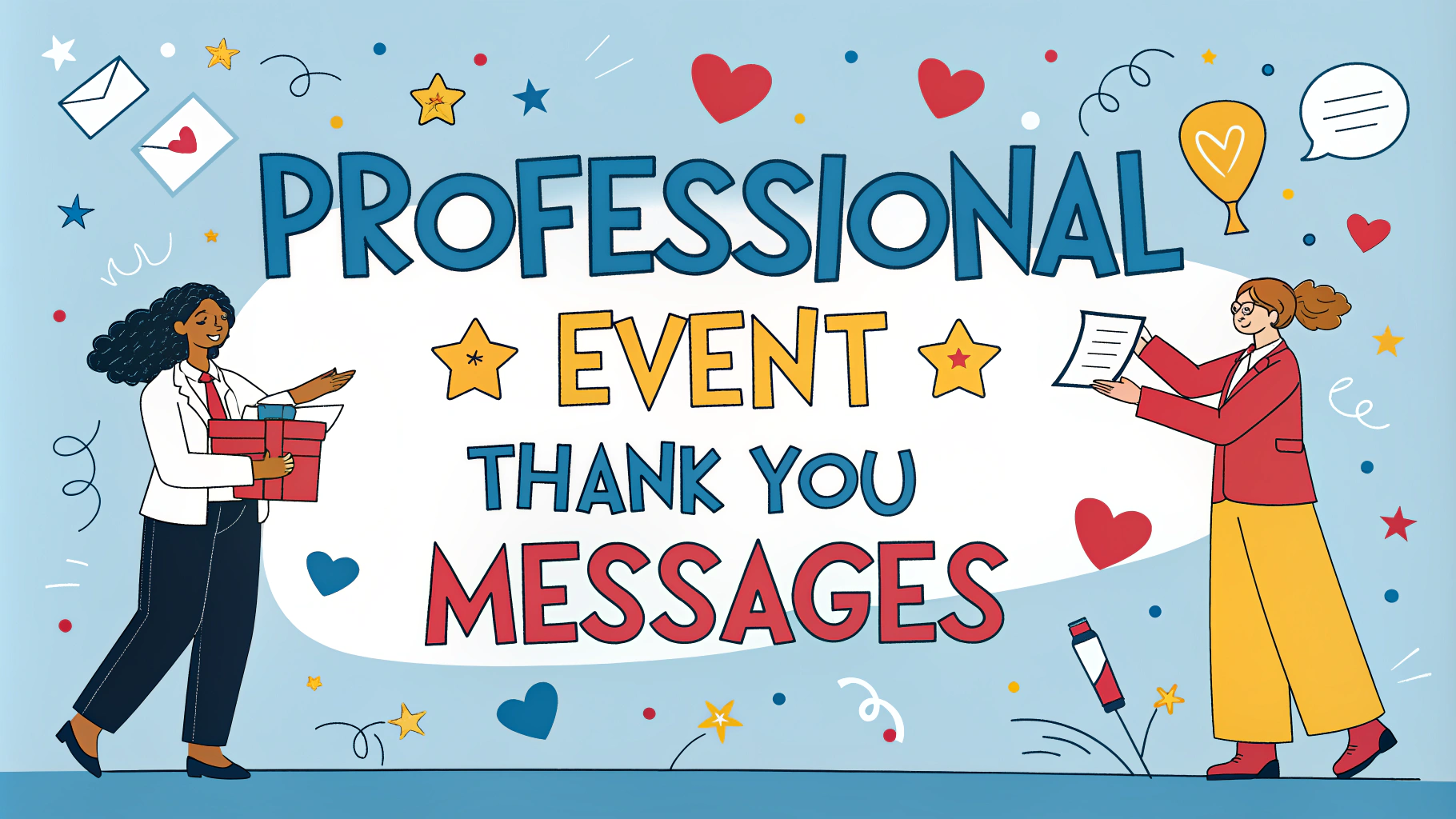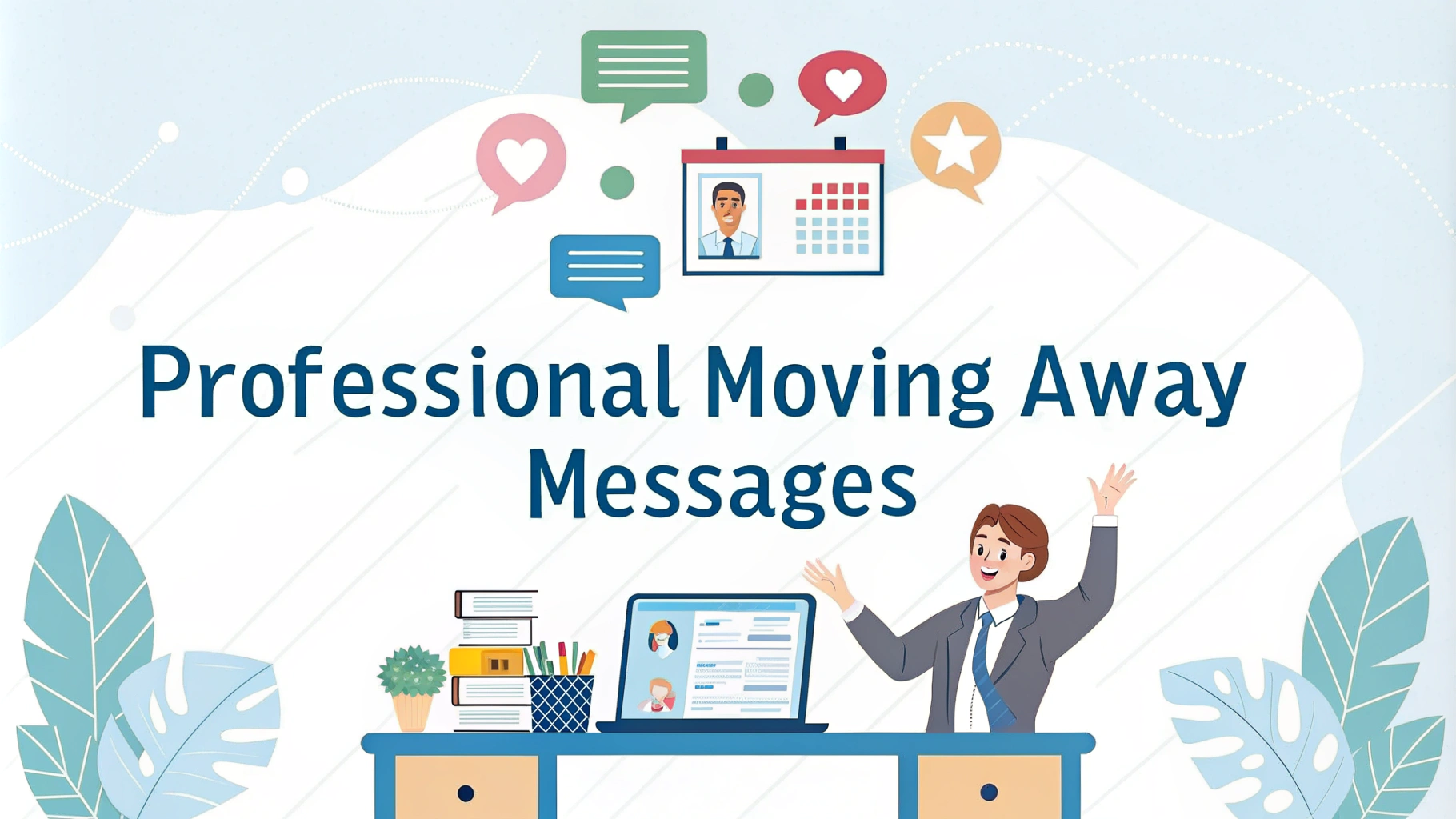A heartfelt teacher appreciation message can brighten an educator’s day and show meaningful recognition for their dedication.
Quick Message Templates
- “Your patience and guidance have made such a difference in my child’s life.”
- “Thank you for inspiring a love of learning that will last a lifetime.”
- “The impact you’ve made extends far beyond the classroom.”
- “Your dedication to teaching shapes futures, one student at a time.”
Personal Thank You Note Tips
Start with a specific memory or example of how the teacher helped you or your child.
Mention particular skills or subjects where the teacher made a difference.
Include details about positive changes you’ve noticed in learning habits or confidence.
Best Times to Send Appreciation
- Teacher Appreciation Week (First full week of May)
- End of school year
- Winter holidays
- After a challenging project or milestone
Gift Ideas to Accompany Messages
| Budget-Friendly | Mid-Range | Group Gift |
|---|---|---|
| Handwritten card | Gift card | Class photo book |
| Homemade treats | Coffee/tea set | Classroom supplies |
Professional Message Elements
- Opening: Address teacher by name
- Body: Share specific impact
- Closing: Express gratitude
Remember to keep messages authentic and focused on the teacher’s specific contributions.
Social Media Recognition
- Tag school’s official accounts
- Use hashtags: #ThankATeacher #TeacherAppreciation
- Share a photo (with permission)
Always check school policies regarding social media posts and photo sharing.
Group Appreciation Ideas
- Create a video montage with student messages
- Organize a surprise appreciation breakfast
- Set up a door decoration with notes from students
Contact your school’s parent-teacher organization for coordination help with group activities.
Delivery Methods
- Hand-delivered note
- School mailbox drop-off
- Email for digital messages
- Video message recording
Making Messages Memorable
Include These Elements
- Specific examples of impact
- Personal growth observations
- Future aspirations influenced by teacher
- Shared classroom moments
Long-Term Impact Recognition
Acknowledge how teaching influences:
- Career choices
- Personal development
- Academic achievements
- Life skills development
Cultural Considerations
- Respect professional boundaries
- Follow school district guidelines
- Consider cultural gift-giving norms
- Maintain appropriate tone
Conclusion
Teacher appreciation messages carry significant weight in acknowledging educators’ dedication and impact. Whether through simple notes, organized events, or thoughtful gifts, showing gratitude helps build stronger educational communities and supports teacher morale.
Remember that timing, sincerity, and specificity make appreciation messages most meaningful. Regular recognition throughout the year, not just during designated appreciation periods, helps maintain positive teacher-student-parent relationships.
FAQs
- What is the best time to send teacher appreciation messages?
Teacher Appreciation Week is celebrated annually in the first full week of May in the United States, though messages can be sent at the end of school year, during holidays, or any time you feel grateful. - Should teacher appreciation messages be formal or casual?
The tone can be adjusted based on your relationship with the teacher – formal for current teachers and administrators, while a warmer, more personal tone is suitable for long-term or former teachers. - What are essential elements to include in a teacher appreciation message?
Include specific examples of their impact, mention particular lessons or moments that were meaningful, express genuine gratitude, and acknowledge their dedication to teaching. - Is it appropriate to give a gift with the appreciation message?
Yes, small gifts are appropriate alongside written messages, but many schools have policies about gift values, so check your institution’s guidelines first. - How long should a teacher appreciation message be?
A meaningful message can be anywhere from 3-4 sentences to a full page, focusing on quality and sincerity rather than length. - Can teacher appreciation messages be sent electronically?
Yes, messages can be sent via email, social media, or digital cards, though handwritten notes are often considered more personal and memorable. - What should you avoid in teacher appreciation messages?
Avoid overly personal comments, inappropriate jokes, criticism, or mentions of grades and assessments. Keep the focus on their positive impact and professional contribution. - Should parents encourage children to write their own appreciation messages?
Yes, children should be encouraged to write their own messages as it helps develop gratitude and communication skills, though parents can guide them. - Is it appropriate to share teacher appreciation messages publicly?
Public appreciation on social media or school platforms is acceptable if the teacher is comfortable with it and school policies allow it. - How can you make a teacher appreciation message stand out?
Include specific memories, use personal anecdotes, mention long-term impacts on your life or career, and be genuine in your expression of gratitude.







